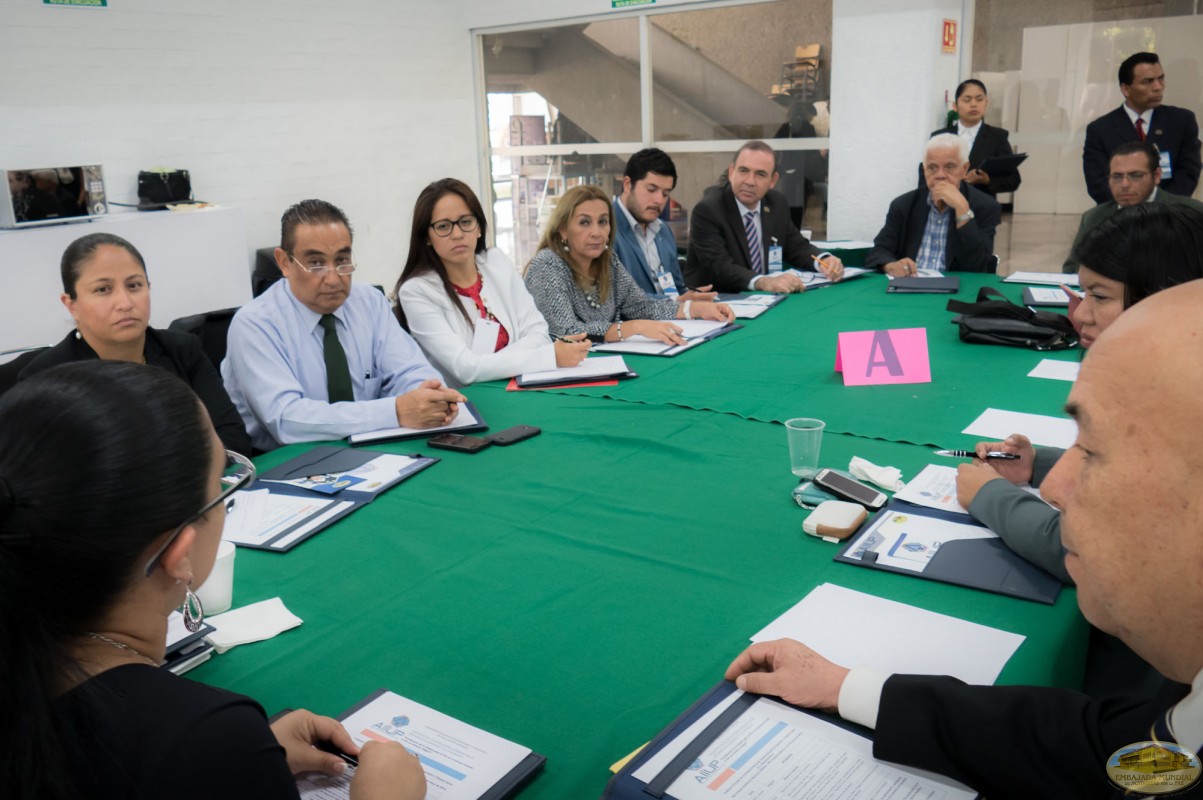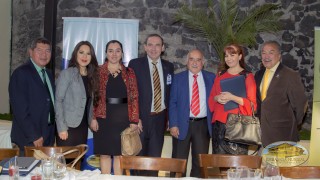With the participation of various educational institutions of higher education and government authorities in Mexico, proposals were made to structure the Chair for Peace.
Under the theme "Challenges of Higher Education in Human Development and Society. Contribution of the Chair for Peace in the formation process of the integral human being", the Global Embassy Of Activists for Peace (GEAP) held the Seminar - Workshop for Universities and Institutions of Higher Education in Mexico City, Tuesday May 31, 2016 at the National Polytechnic Institute (IPN), at the premises of the Interdisciplinary Professional Unit of Engineering and Social and Administrative Sciences (UPIICSA).
The IPN, founded in 1936 in Mexico City, is a public education institution at the middle, high and graduate level; currently considered one of the most important educational institutions in Mexico and Latin America, by grade level and registered enrollment of over 160,000 students in its 293 educational programs.
During the academic meeting developed under the International Alliance of Universities for Peace (ALIUP) of the GEAP, prominent educational institutions of higher level, represented by university professors, rectors, principals, teachers, students, representatives of the Ministry of the Interior; as well as representatives of the Ministry of Education of Tlaxcala, Queretaro and Hidalgo state were present.
Education: weapon that becomes a great responsibility
During the welcome, Victor Manuel Gonzalez Hurtado, academic deputy director of UPIICSA, stressed the need to reflect on the responsibility of institutions to prepare professionals with moral values and skills for the service of their country and society. He added that the desire of the UPIICSA is that all these workshops being carried out are helpful to build a better world.
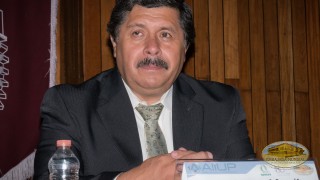
Dr. Francisco Guerra, national coordinator of the GEAP in Mexico, took a few minutes to enumerate every project the Embassy carries out in various countries. Then he quoted Nelson Mandela: "Education is the most powerful weapon to change the world," noting that the main objective of the ALIUP is for universities to promote and strengthen this responsibility, to make education a model of principles and values.
Meanwhile, Ivonne Reyes García, representative of the Unit for Political and Civic Development of the Secretariat of the Government, stressed the importance of establishing a relationship of
responsibility with ALIUP, since one of the tasks the Secretariat is to connect institutions and work for society.
To end the first section, Iliana Vergara, representative of the National Human Rights Commission (CNDH) in Mexico, noted that one of the main objectives is to achieve happiness and a dignified life
recognizing each other and promoting the value of tolerance to achieve respect in all its dimensions.

Proposals that enrich the topics addressed by the Chair for Peace
Later, the workshops were carried out with the main purpose of finding proposals that contribute to building peace in the educational and social fields. The topics were:
Table A
- Pedagogical focus for the knowledge and practice of universal principles and values in the process of student training approaches.
- A comprehensive education that favors the construction of a culture of peace, the promotion and protection of human rights and democratic values.
Table B
- The inclusion of the Chair for Peace and the Department of Human Rights and the Holocaust in the university system.
- The social responsibility of Universities and Institutions of Higher Education in the process of building a culture of peace in society.
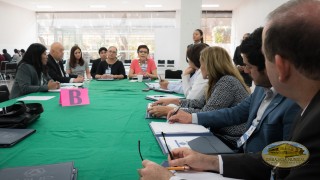
In Table A, Dr. Francisco Guerra as moderator, stressed the desirability of joining forces under the right approach, to develop specific plans that allow from the family and primary, secondary and higher education, in coordination with the community, be committed to work for society; transmitting, sharing and using all values and talents to achieve universal peace.
Dr. Gloria Maria Abarca, PhD in International Peace Studies, Conflict and Development of the UNESCO Chair, stated that "the victim is becoming victimizer" and for that reason we need to be well organized and work together to rebuild the culture of peace, adding that it is not a distant, foreign, or strange affair to obtain.
Moderators of Table B, Margarito Hernandez Gonzalez and Dr. Jaime Murow, concluded that schools, from elementary, middle and high school level, should implement and update matters concerning
human rights, the Holocaust and the theme of peace; but not only peace, but is should be rich in values, and thus inform students why the Holocaust happened. As a lesson, they added that grudges should be left behind and respect encouraged, because you cannot work in a culture of peace if we do not live and practice it.
The psychologist from IPN of Guanajuato, Angeles Gutierrez, adding that this Chair for Peace should be done in a tripartite manner: the practice and transmission of knowledge by the teacher, the acquisition of knowledge and practice by the student, and support they must receive at home. It also commits to continue working towards the practice of peace, as it is important that it returns.
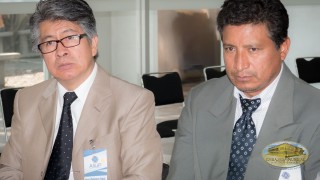
Referring to the National Polytechnic, Jose Balmaro Nava said that we should think about how to incorporate this Chair for Peace in models of technical education, while stressing the importance of implementing it within the plans and curriculum of every career.
All these proposals and conclusions were presented by a representative of each table; and at the, Dr. Francisco Guerra as coordinator of the GEAP, thanked everyone’s participation, extending the invitation to the next event, the Peace Integration Summit (CUMIPAZ), which will be held in Paraguay this year.
